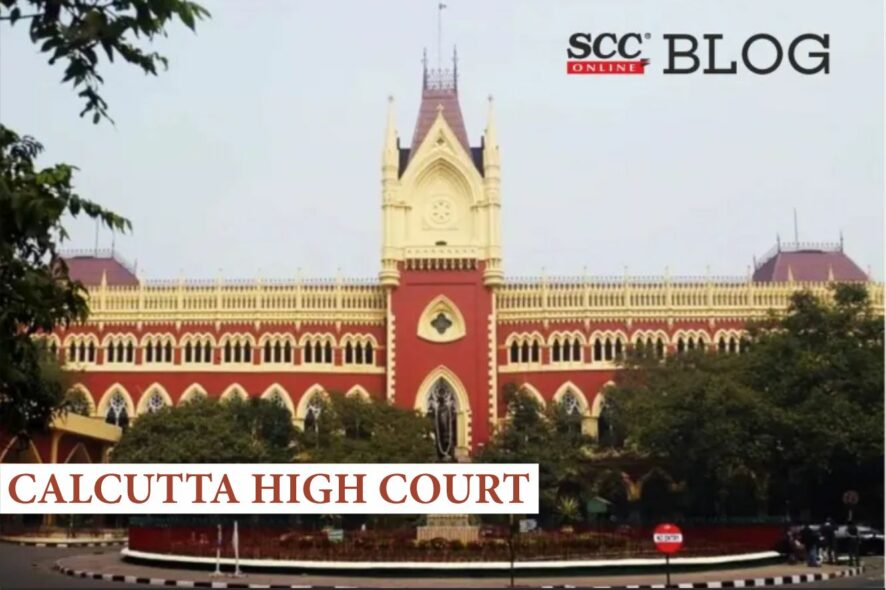Calcutta High Court: Ajoy Kumar Mukherjee, J. allowed a revisional application which was filed for quashing of the proceeding under Sections 3, 4, 5, 7 and 18 of the Immoral Traffic (Prevention) Act, 1956 (in short, I.T.(P) Act) read with Section 120-B of the Penal Code, 1860 and also for setting aside the order whereby the Additional Chief Metropolitan Magistrate had taken cognizance against the present petitioner.
The petitioner is a non-residential Indian businessman and in course of such business he visited Kolkata in the month of January, 2019. On 04-01-2019, the petitioner was having a backache and the petitioner was looking for a place where he could get a back massage, he found a place on the internet and went there for the service. During the session a raid was conducted and the petitioner was informed by the police officer that the alleged place was involved in certain offences and that he was required for the purpose of investigation. He was later informed that he was arrested in connection with a police case registered against the said Spa for violation of said I.T.(P) Act. However, the petitioner was granted ad interim bail on 05-01-2019.
The advocate for the petitioner strenuously argued that the petitioner at best can be termed as a customer and accordingly, he cannot be held liable under any of the provisions of the said Act. The advocate representing the State submitted that the petitioner was caught red-handed from the brothel and after completion of investigation, the investigating agency had rightly submitted a charge-sheet against the petitioner under Sections 3, 4, 5, 7 and 18 of the said Act, on the basis of materials collected during investigation.
It was specifically mentioned in the charge sheet that accused 1, 2 and 4 to 10 were living on the earning of prostitution and accused 3 (present petitioner) being “customer” was receiving sexual enjoyment in lieu of money.
The Court observed that there was no material in the case diary which could suggest that the present petitioner was living on earning of the prostitution. It was further noted that there was nothing to show that the petitioner exercised control, direction or influence over the sex-worker’s movement in the way, which can be shown to be aiding or abetting sex work. Mere visiting the house of a sex worker as customer cannot be presumed to be living on earnings of sex workers. To invoke the presumption it must be shown that he was found in the company of the sex worker on some other occasion.
Prostitution per se is not prohibited under I.T. (P) Act but it is also equally true that a “customer” may virtually encourages prostitution and may exploit the sex worker for money but in the absence of any specific allegation and materials, the Court had serious doubt as to how present petitioner (accused 3) who was according to prosecution case merely a “customer” can be convicted with the help of materials in the case diary. and under the said provisions of law.
The Court while allowing the application found that the sections under which the cognizance had been taken by the Magistrate against the present petitioner are bad in law and the said cognizance was taken without considering the materials in the case diary. The Court quashed the chargesheet and set aside the cognizance of offences under the the I.T. (P) Act.
[Suresh Babu v. State of West Bengal, 2022 SCC OnLine Cal 1485, decided on 13-06-2022]
Advocates who appeared in this case :
Mr Tusher Kanti Mukherjee and Mr Abu Abbas Uddin, Advocates, for the Petitioners;
Mr Madhusudan Sur and Mr Dipankar Paramanick, Advocates, for the State;
*Suchita Shukla, Editorial Assistant has reported this brief.








That was an insightful and well-articulated analysis! 💡⚖️ The judgment highlights an important distinction in law and ensures fairness in its application. Thank you for sharing this nuanced perspective! 🙌📜